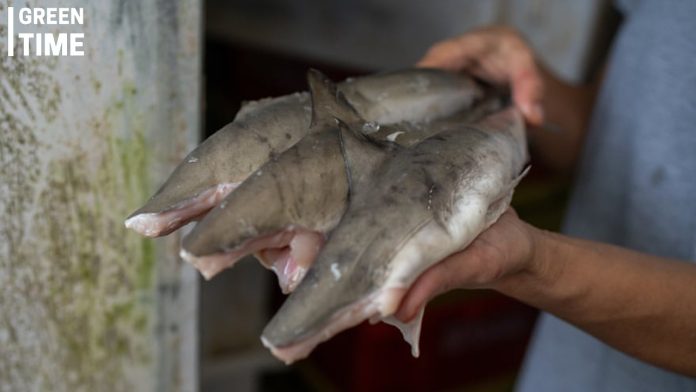The bright blue skies and calm waters of Cananéia’s estuary mask the rough seas and bustling trade of shark meat that trouble scientists and environmentalists. This sleepy fishing town, 160 miles south of São Paulo, has become a hub for importing and processing sharks, with a recent delivery of frozen school shark from Uruguay highlighting the ongoing trade.
Helgo Muller, the company manager, explains the rationale: “People like it; it’s good and cheap protein.” Despite being a small fraction of the firm’s business, they process about 10 tonnes of shark monthly, sourced from countries like Costa Rica, Uruguay, China, and Spain. Shark meat, once a traditional food in coastal Brazilian communities, has now become widespread due to its affordability and ease of cooking.
However, this demand places unsustainable pressure on shark populations. Brazil is the top importer and one of the largest consumers of shark meat in a global market worth an estimated $2.6 billion. According to Prof. Aaron MacNeil of Dalhousie University, sharks are particularly vulnerable to overexploitation due to their low reproduction rates. Research indicates that 83% of shark and ray species sold in Brazil are threatened.
Historically, conservation efforts targeted the fin trade and the brutal practice of “finning.” However, new research reveals that meat trade now surpasses fin trade in value. Many Brazilians are unaware that cação, a generic term for shark and ray meat, refers to these endangered species.
Brazilian law prohibits shark fishing, but sharks are often landed as bycatch, complicating enforcement. Misidentification and inadequate regulation exacerbate the problem, with many fishers unaware of species protections.
Amid global conservation efforts, Brazil is taking steps to address the issue. New bills propose clear labeling of shark products and bans on public purchases. Additionally, quotas for blue shark catches by tuna longliners have been introduced. Conservationists like Nathalie Gil of Sea Shepherd Brasil emphasize the need for public awareness and respect for these ecologically vital animals. The hope is that informed consumers will drive change and reduce the unsustainable pressure on shark populations.

